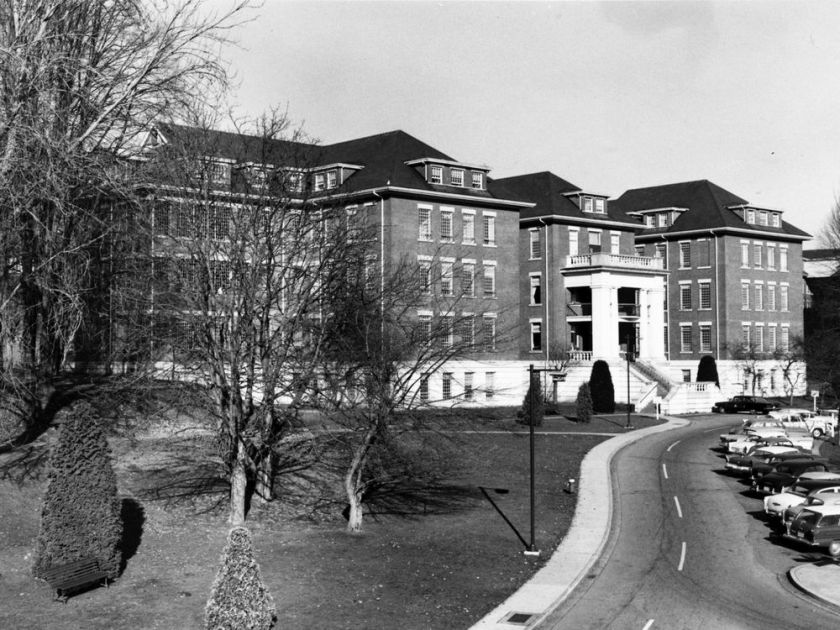
Herschel Hardin, July 16, 2017.
This article first appeared in the Vancouver Sun.
We fret about the future of the Riverview Lands as if they were an idyllic place fixed in time, where any change to the way we use the Lands, or any imaginative idea for them, is hard to countenance.
We should instead ask ourselves how the Lands can best be used to help those who suffer from serious mental illness – the historical legacy of Riverview – and take it from there.
With that as our imperative, we’re proposing, as the backbone of the Lands, an “intentional community” in which those with serious mental illness, stabilized in acute and tertiary care, will live together with others without a mental illness in an integrated community purpose-built to help the seriously mentally ill flourish.
We’ve named the proposed community Riverview Village. It’s a new and innovative option for the future.
A little bit of clinical background will help to understand the rationale, because the introduction of anti-psychotics for those with schizophrenia has changed the paradigm from the days of the old Riverview Hospital.
Before anti-psychotics, there was no satisfactory treatment for psychosis, with its delusions, hallucinations, often paranoia, and related symptoms like catatonia. Anti-psychotics deal with these symptoms and in most cases stabilize people, after which they can be discharged from hospital. It’s why we no longer need a huge, institutional treatment complex on the Lands, with a correspondingly huge number of patients and staff.
What happens after discharge, though? Anti-psychotics don’t help reintegrate people into society or expand their horizons. And, indeed, there’s a whole other range of symptoms, ongoing chronic symptoms, that for many of those with schizophrenia pose great difficulty. Profound loss of motivation often accompanies such illness (“avolition” it’s called, in clinical language). Poor social interactions are another difficulty, exacerbated for many by their having fallen ill in their late teens when social skills are usually developed.
Dampened feelings and responsiveness, trouble with rhythm and clarity of speech, slowed movement, and cognitive deficit can be other difficulties.
These problems do not respond well to existing treatments. Unlike anti-psychotics for psychotic symptoms, for example, there’s currently no effective medication for them. Also, unlike acute-care treatment which is relatively brief, these challenges may last for the rest of people’s lives. Many people end up isolated and languish, with limited activities and seemingly bleak futures. They are said to be “in the community,” which sounds nice, but they’re not “of the community.” As long as they don’t cause trouble, we may in fact not have any contact with them at all.
The intentional community we’re proposing both recognizes and addresses this new paradigm, where anti-psychotics allow for deinstitutionalization but continuing chronic symptoms endure.
In the proposed community, those with a mental illness will establish real relationships with those without a mental illness, breaking their isolation. A community centre will anchor the village and a wide range of activities. Meaningful work will be arranged for those who can manage it. An arts hub is proposed, with studios and retail shops, whereby the mentally ill can connect with artists and craftspeople, and where those with an aptitude become part of that artistic community and sell their work. Community facilitators will help bring people together and keep the community vibrant.
Most of all, the Village will give those with serious mental illness a true sense of belonging It will bring the strength of community to bear, something already demonstrated in existing intentional communities with therapeutic objectives.
There will be critical clinical benefits as well from this community engagement and support. Relapses – going through the “revolving door” in and out of acute care or the justice system – will be reduced, with economic savings as a bonus. Acute and tertiary beds will be freed up, and also freed up by the increased access to housing.
Keep in mind what the goal is here: to help those with serious and persistent mental illness contend with their residual chronic symptoms and achieve a better quality of life.
Make no mistake, either, about how challenging those difficulties are and the degree of attention we should give to them. Even if they’re not dramatic and intrusive like psychosis, they’re every bit as serious in their own way. Dawn Velligan and Larry Alphs, two American specialists on the subject, remind us, in a clinical article in the Psychiatric Times, “it may be that the negative [chronic, enduring] symptoms of schizophrenia… contribute more to poor functional outcomes and quality of life for individuals with schizophrenia than do [psychotic] symptoms.”
This is where the Riverview Lands offer a unique possibility – a community that those with a serious mental illness will be able to consider their own and where they will have the best chance to flourish.
Herschel Hardin is president of the Riverview Village Intentional Community Society.
